Ford five window coupe hot rod rat rod high boy
- Location: Victorville, California, United States
- Make: Ford
- Model: Five window coupe
- SubModel: High boy
- Type: Coupe
- Year: 1926
- Mileage: 1,000
- VIN: 54385419
- Color: Clear coat metal
- Engine size: 1937 flathead v8
- Number of cylinders: 8
- Fuel: Gasoline
- Transmission: Manual
- Drive type: RWD
- Interior color: Black and burgundy
- Vehicle Title: Clear
1926 Ford Five window coupe Description
Original all steel ford five window coupe high boySitting on a 1932 frame1932 grillCalifornia car 🇺🇸🇺🇸🇺🇸50's style hot rod with a great look
Definitely a head turner
Your chance to own a run and driving ford five window coupe
1937 21 stud flathead v8 with serviceable main bearings,
The 1937 flathead v8 21 stud is the holy grail of flathead v8's because it offers the early look with water pumps on the head or you can move the pumps on the block, the only year this is a option. Plus it's a serviceable main bearing engine.
Very rare and desirable engine.
Manual transmission3 speed
Dropped axle
4 link front and rear
Stainless steel suspension
🇺🇸Bonneville Salt Flat racing wheels 🇺🇸
Clear coat finish on steel body to seal the patina steel look with real authentic period correct bullet wounds, this car tells a story just from looking at it. You can see the history
Hope you guys like the look I was going for,
If you look closely there are bullet holes from a more "adventuresome timeâ€
Bonnie and Clyde stuff here guys 🚔💰🚨💰🚔
To much to list
Titled as 1926 ford coupeIn my name
Pretty much all there, i never got around to putting the door windowsin it. In California we drive with windows down anyway. The window regulators are there and you can just order the glass online if you wish.
All other glass is thereShipping 🌟🌟🌟I will assist the buyer to arrange shipping if neededand do my best for a smooth and pleasant transactionSelling worldwide
Deposit is is due 24 hrs after auction ends and is $1500 non refundableInspections to be done before purchase
About the engine......
The early 1937 21-stud engine is the favorite replacement engine for '32 to '36 Ford V8's. It is an inserted main bearing like the LB's of late 1936. It also allows you to put the early heads on the engine to "look" correct, hoses and all.
Because it's the insert type bearing engine it's more $desirable.
The 1937 block was the replacement block from Ford for the older style '32 to '36 21-stud cars and trucks that had V8's after its introduction in late 1936. It allowed you to use your heads, radiator etc. and only change the short block.
forgot to add that the '37 replacement block occasionally shows up NOS even in the last 15 years. Ford made a bunch of them and it is the next best block to a 1936 LB, or an original block, as far as looking correct in the early cars. Full inserted mains.
6 volt electrical system. Oil pressure is 20 psi at idle after warming up. 30 psi before warm up.
About the steel....
Henry Ford built a fine car using only top-quality materials such as Vanadium steel.
Vanadium Steel
This lightweight, (blueish dark gray color) durable, easily machined steel alloy was developed in Europe and used on racing cars and premium-priced vehicles before Ford became aware of it around 1905. He recognized that the material's high tensile strength (nearly three times greater than cheaper, lower-grade steels) would allow him to make a stronger, lighter, better performing car.
During a car race in Florida, Ford examined the wreckage of a French car and noticed that many of its parts were of lighter-than-ordinary steel. The team on Piquette Avenue ascertained that the French steel was a vanadium alloy, but that no one in America knew how to make it. The finest steel alloys then used in American automaking provided 60,000 pounds of tensile strength. Ford learned that vanadium steel, which was much lighter, provided 170,000 pounds of tensile strength. As part of the pre-production for the new model, Ford imported a metallurgist and bankrolled a steel mill. As a result, the only cars in the world to utilize vanadium steel would be French luxury cars and the Ford, it might break down every so often, but it would not break.
 1932 Ford Coupe, 3 window, High Boy
1932 Ford Coupe, 3 window, High Boy
Mileage: 30,000
 1932 Ford 5 Window Coupe High Boy
1932 Ford 5 Window Coupe High Boy
Mileage: 56,487
 Ford five window coupe hot rod high boy ( no reserve )
Ford five window coupe hot rod high boy ( no reserve )
Mileage: 111
 1932-FORD-3-WINDOW-HIGH-BOY-COUPE
1932-FORD-3-WINDOW-HIGH-BOY-COUPE
Mileage: 2,400
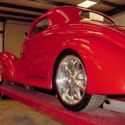 1937 FORD 3 WINDOW COUPE HIGH END BUILD
1937 FORD 3 WINDOW COUPE HIGH END BUILD
Mileage: 6,000
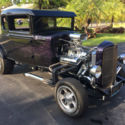 1931 FORD MODEL A 5 WINDOW COUPE (all steel) High Boy
1931 FORD MODEL A 5 WINDOW COUPE (all steel) High Boy
Mileage: 205
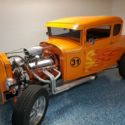 31 Ford 5 Window Coupe All Steel High End Build Hot Rod Street Rod Rat Rod
31 Ford 5 Window Coupe All Steel High End Build Hot Rod Street Rod Rat Rod
Mileage: 1500
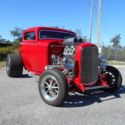 1932 Ford 3 Window High Boy Coupe Street Rod,Red,Auto,Air,350 Must See!
1932 Ford 3 Window High Boy Coupe Street Rod,Red,Auto,Air,350 Must See!
Mileage: 6,738
 1933 Ford 5 Window Coupe High Boy Street Rod,Henry Ford Steel, EFI 302,MUST SEE!
1933 Ford 5 Window Coupe High Boy Street Rod,Henry Ford Steel, EFI 302,MUST SEE!
Mileage: 310













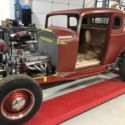 1932 FORD 5 WINDOW COUPE PROJECT HIGH END BUILD
1932 FORD 5 WINDOW COUPE PROJECT HIGH END BUILD